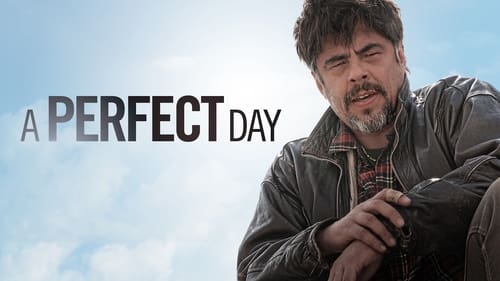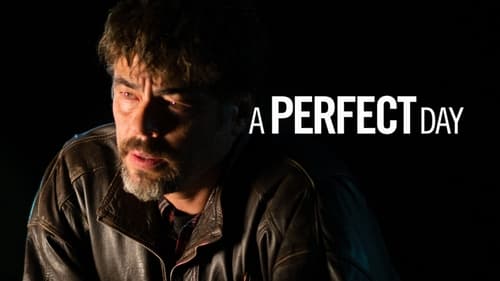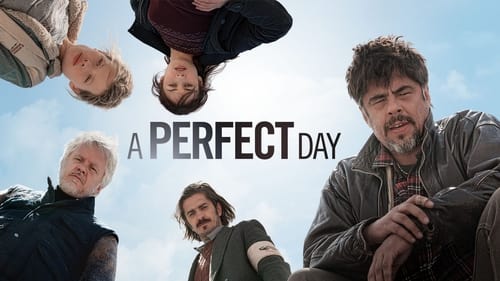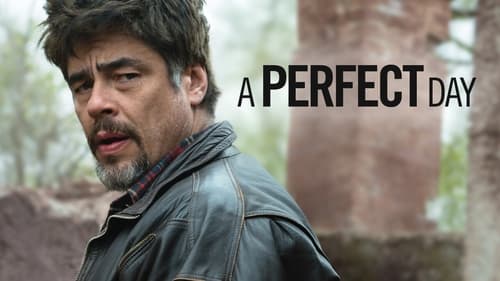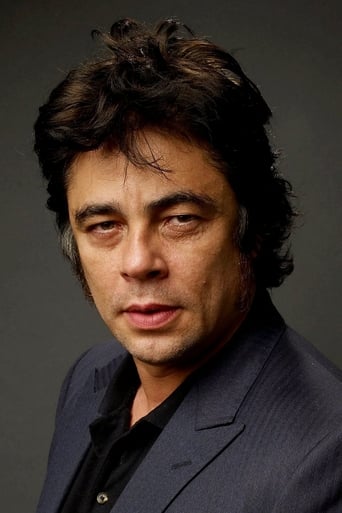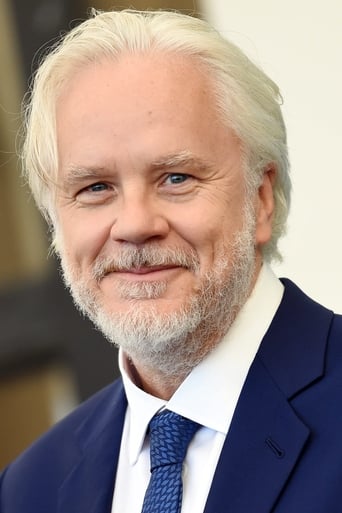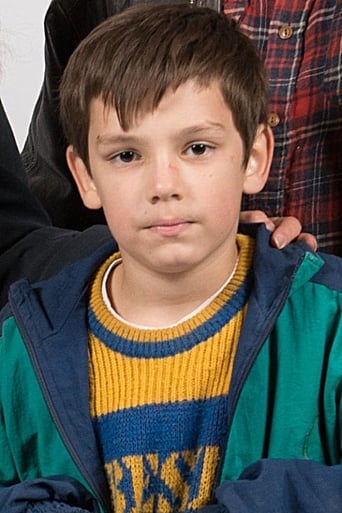Amari-Sali
Characters & Story (with Commentary)It all begins, and ends, with a dead body in a well. Mambru (Benicio Del Toro) and Damir (Fedja Stukan) tried to get it out, but their rope breaks. Sophie (Mélanie Thierry) makes it a huge thing when they return to the UN base, and with her getting rebuffed comes her pushing the others of her group to go against orders. So everyone, including B (Tim Robbins) a grade-A eccentric, head off to find a rope.But, with this rope journey comes Nikola (Eldar Residovic), a child who lost their ball to bullies who Mambru feels sorry for, and then Katya (Olga Kurylenko). Now, while Nikola's part in this story isn't necessarily huge, nor Katya when I think about it, both are perhaps the only reason Mambru isn't forgettable. For while Sophie is identifiable by how passionate she is about the locals having clean water, and B is memorable for how out there he is, the other two are a bit dull. Though Nikola and Katya change that. Nikola shows Mambru has a soft side and with Katya, while we know Mambru has a reputation, as well as a girlfriend, Katya, sadly, helps push the idea he is some sort of reformed man.Leaving us with a film which sort of presents the idea that humanitarian aid workers come in all shapes, sizes, and bring their own unique sense of drama. HighlightsAs individuals, I must admit both B and Sophie are intriguing enough that it almost makes you wish this film was just about those two. B would be the one who is willing, and mentally able, to do whatever it takes to get the job done, and Sophie may be reluctant to follow B's methods, but since red tape and "No" don't go well with her sense of justice, she goes along with it. To me, that would have been interesting and paired with us getting to know their history and journey, it could have made for a decent film. Low Points>The film ends and begins at a well and it bugs me out a little bit for that is all this 1 hour and 46-minute movie is about. They are searching for a rope, and then they throw in some mentions of Mambru's love life. Which, even with damn near every supporting character doing her best to make him seem interesting, it just doesn't work.>The lack of commentary was a bit disappointing to me. There isn't much said about the war in the Balkans, much less how much difficulty they had being aid workers in the region. Instead, as noted, we get a bit of relationship drama and watch the group search for rope.>I was left wondering why any of the cast, besides Sophie, wanted to become aide workers? For while there is downtime here and there, there isn't much of an attempt to allow us to get to know the characters. We don't get to see why they would go into an area filled with mines that could easily kill them, we aren't given the chance to understand why, likely for years, they have been aid workers, much less, while it is clear that everyone knows everyone, there isn't any epic story between them which really makes them seem like the type of group who would stick their neck out for one another. If anything, they just seem like they were assigned together, witnessed or heard somethings, and just pick on one another most of the time. Which, for what I know, could be how things are, but it made for a bleh viewing experience.>I did not understand, for the life of me, how taking a child, Nikola, and keeping him for about a day, made any sense to Mambru? They are in an area in which the military still has a strong presence, and people are still being murdered and illegally detained, there is always the chance that between their convoy, or the UN base, they could have been attacked and, lastly, what Mambru did damn near looks like a kidnapping. Something Katya says and while it is good Nikola's grandfather doesn't flip out, considering the murder, and likely kidnappings, in the area, it makes the film all seem too convenient. Be it the Nikola situation, or everything else that happens.Final Thought(s): Skip ItSometimes I have quite a difficult time deciding between what to skip and what to just lump into TV Viewing, and then there are films like this. One which, as much as it has potential in some areas, I find myself more so finding things to pick over than to praise. Leaving me without much of a, "yeah this and this may suck, but this compensates for that immensely." Which is something I can't say with this film. There is nothing really within this film to compete with its shortcomings, thus leaving me thinking this film isn't worth your time and whatever effort it would take to see this film. For despite, on paper, potentially being interesting, it fails to pick up on any topic which could have been a bright point. Be it a child's point of view of the war, witnessing the lives of aid workers, or even making this into the type of adventure which, yes, may have been about something as simple as getting a rope, but at least had the type of characters who made a simple journey worth following.
CineMuseFilms
It is ironic that war is the biggest industry on the planet. Its wider industrial domain includes warrior politicians, arms manufacturers and military forces. Less acknowledged, it also includes those who perpetually seek amelioration of its consequences like the United Nations and various humanitarian aid agencies. All of those groups regularly star in movies but aid workers get little cinematic glory. It is in this wider context that the Spanish-directed film A Perfect Day (2015) is an unusual and original addition to black comedy war dramas, least of all because the way it avoids typical war movie scenarios and narratives. It covers 'one perfect day' during the military wind-down in the Balkans crisis of mid 1990s and is a refreshing, entertaining and informative insight into the role of aid workers when the big guns go quiet.The story begins and ends with the image of a big fat corpse in a well, dumped deliberately to pollute village water. In between we see the frantic efforts by a small group of aid workers to find scarce rope that can haul him out, and rope becomes a metaphor to join several unconnected incidents that make up the narrative. There Is no sound of bombs or signs of fighting; we only see a beautiful country full of silent monuments to the devastation of war. Bombed-out ghosts of villages, homeless children, poverty and toxic hygiene are some of an aid worker's challenges and black humour is the universal panacea for coping. On this day, the group must deal with the risk of hidden road mines in cattle carcasses, villager distrust and military animosity towards interfering aid workers, and a United Nations bureaucracy that shows little sensitivity towards dispossessed victims of war. Oh, and find a soccer ball for a young boy.As with all character-driven films, this one is less about what happens and more about what it is like to be there. The characters built with re-purposed M.A.S.H. traits that are likable, funny and plausible, and the acting is top-class. There are no glory hounds in the group and each has their own coping strengths and emotional foibles. The director orchestrates the characters and sub- stories with perfect tempo to produce a story that is totally engaging if not gripping. You might wonder how a group of loosely disciplined and unaccountable workers can roam freely across a war-ravaged country, or whether the final scene is actually a political statement about their true value. If so, the film has made its mark.

